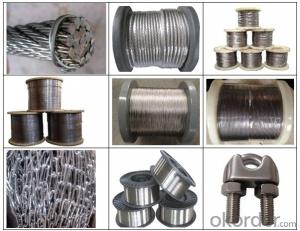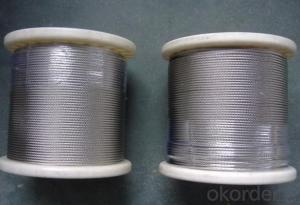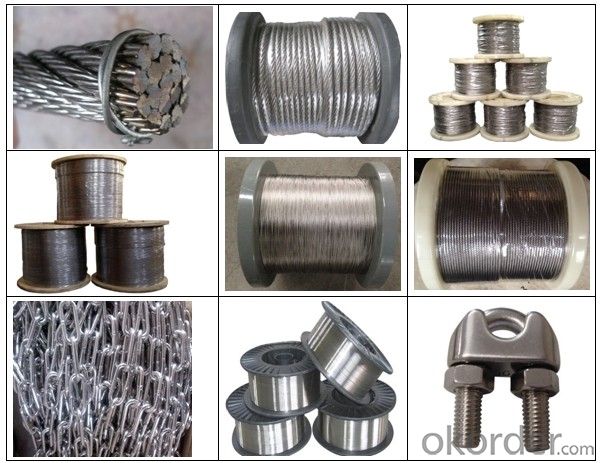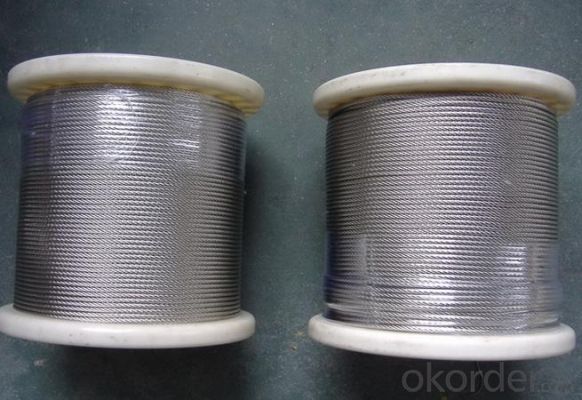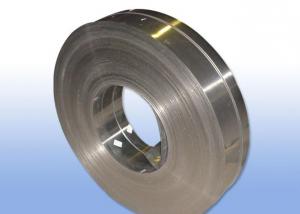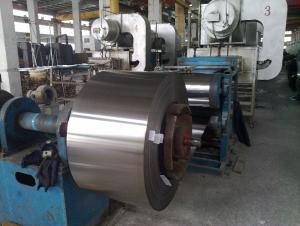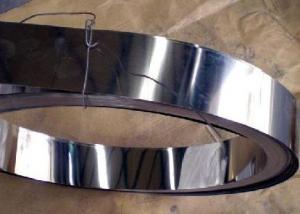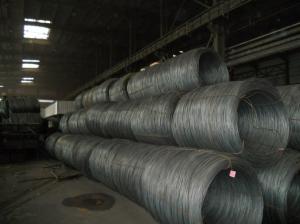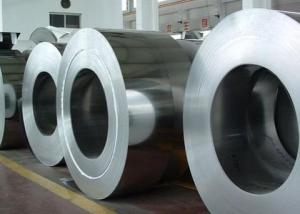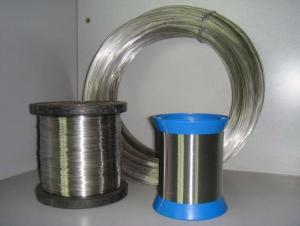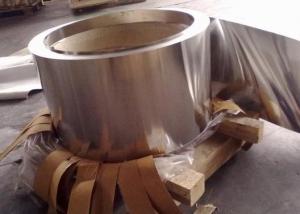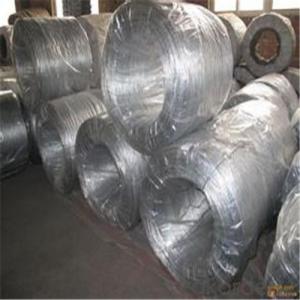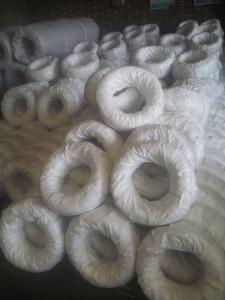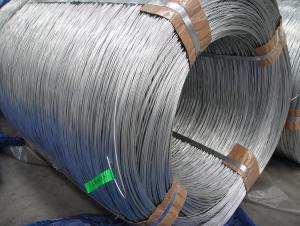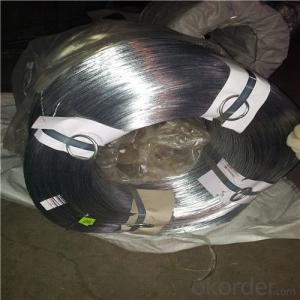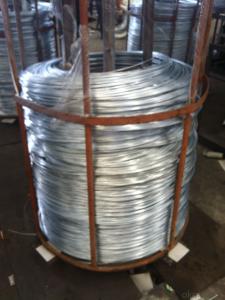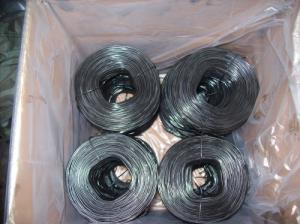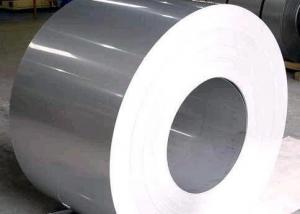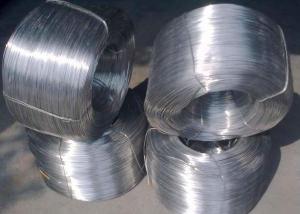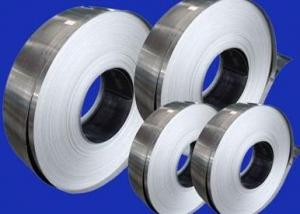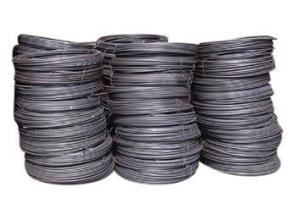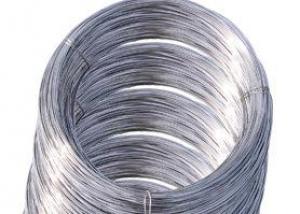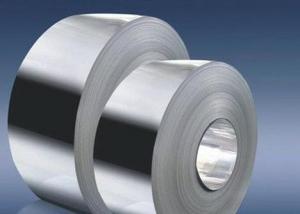Wire Galvanized Carbob Steel Wire for ACSR
- Loading Port:
- Dalian
- Payment Terms:
- TT OR LC
- Min Order Qty:
- 5 m.t.
- Supply Capability:
- 10000 m.t./month
OKorder Service Pledge
OKorder Financial Service
You Might Also Like
Specification
Wire Galvanized Carbob Steel Wire for ACSR
Quick Details
Steel Grade: | steel | Standard: | AISI, ASTM, BS, DIN, GB, JIS | Wire Gauge: | 1.24-5.50mm |
Place of Origin: | China (Mainland) | Type: | Galvanized | Application: | Manufacturing |
Alloy Or Not: | Non-alloy | Special Use: | Cold Heading Steel | Model Number: | wire galvanized steel for acsr |
Brand Name: | CNBM | wire galvanized: | wire galvanized steel for acsr |
Packaging & Delivery
Packaging Details: | Coil with plastic outside or according to customer's requirement. |
Delivery Detail: | 20 working days after receiving your order. |
Wire Galvanized Steel for ACSR
1. Material: Q195,Q235,45#,60#,65#,70#,72B,80#,82B,65Mn
2. Surface Coating: Galvanized
3. Characteristic: High tensile strength,small tolerance
Shiny surface, good corrosion prevention
4. Packing type:Spool or Coil
5. Application: Being used for stranded conductors in overhead power circuitry
6. Remarks during use and handling:
a. During transportation, handle softly and carefully, avoid bumping and damaging the steel wires. Moisture and rain prohibited. Steel wires must be stored in dry and well ventilated indoors
b. Pay attention to the direction of steel wires when paying-off. Be sure the spool or coil is rotating freely as to achieve identical tension of all the steel wires
c. In case of batch usage, the remaining should be repacked to avoid oxidizing of the surface
Technical parameters
Wire dia: 1.24-5.5mm; Tensile Strength:1290~1340Mpa
Nominal diameter (mm) | Tensile Strength | Stress at 1% Elongation | Twist | Elongation | Standard |
mm | Mpa | Mpa | Times/360° | Lo=250mm | |
1.24~2.25 | ≥1340 | ≥1170 | ≥18 | ≥3.0% | As per GB,EN,IEC,JIS,ASTM standard, as well as customer's request |
2.25~2.75 | ≥1310 | ≥1140 | ≥16 | ≥3.0% | |
2.75~3.00 | ≥1310 | ≥1140 | ≥16 | ≥3.5% | |
3.00~3.50 | ≥1290 | ≥1100 | ≥14 | ≥3.5% | |
3.50~4.25 | ≥1290 | ≥1100 | ≥12 | ≥4.0% | |
4.25~4.75 | ≥1290 | ≥1100 | ≥12 | ≥4.0% | |
4.75~5.50 | ≥1290 | ≥1100 | ≥12 | ≥4.0% |
NOTE:Providing engineer design as per cstomer's request.
Picture
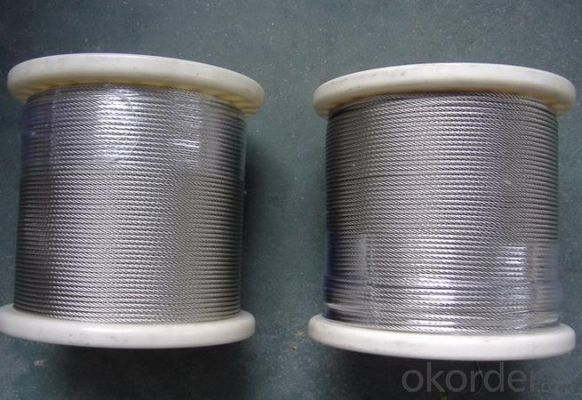
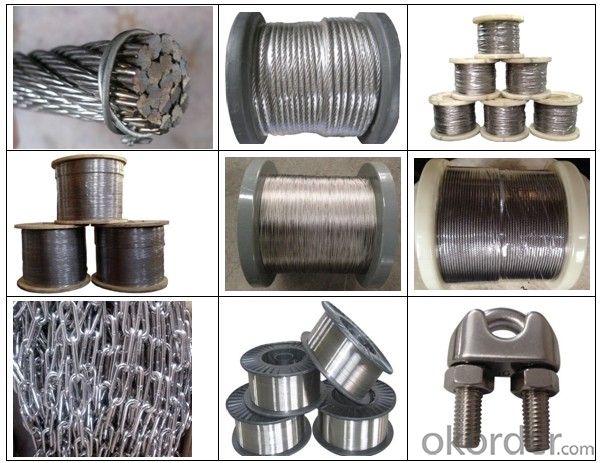
- Q: Can stainless steel wire be used for springs in the oil and gas industry?
- Yes, stainless steel wire can be used for springs in the oil and gas industry. Stainless steel is known for its excellent corrosion resistance, mechanical properties, and high tensile strength, making it a suitable material for demanding environments such as the oil and gas industry. Stainless steel springs can withstand high temperatures, pressure, and exposure to various chemicals and corrosive substances commonly found in this industry. Additionally, stainless steel's durability and longevity make it a reliable choice for springs that require long service life and minimal maintenance.
- Q: What industries commonly use stainless steel wire?
- Stainless steel wire finds extensive applications in a wide range of industries due to its exceptional properties and durability. One of the most common industries that utilize stainless steel wire is the automotive industry. It is used in various components including springs, cables, and wire harnesses due to its high tensile strength, resistance to corrosion, and ability to withstand extreme temperatures. Another industry that commonly relies on stainless steel wire is the construction industry. It is utilized in the construction of buildings, bridges, and other structures where its corrosion-resistant properties are essential, particularly in areas exposed to harsh weather conditions or high levels of humidity. The medical industry is yet another sector that extensively uses stainless steel wire. It is employed in the manufacturing of surgical instruments, medical devices, and implants due to its biocompatibility, resistance to corrosion, and ease of sterilization. Stainless steel wire is crucial in ensuring the safety and reliability of medical equipment and implants during surgical procedures. Moreover, the food and beverage industry heavily relies on stainless steel wire for various applications. It is used in the production of food processing equipment, conveyor belts, sieves, and filters due to its hygienic properties, ease of cleaning, and resistance to corrosion caused by acidic or alkaline substances. The aerospace industry also commonly employs stainless steel wire in numerous applications. It is utilized in aircraft components, such as control cables, springs, and fasteners, due to its high strength-to-weight ratio, resistance to corrosion, and ability to withstand high temperatures. Lastly, the marine industry extensively utilizes stainless steel wire due to its resistance to saltwater corrosion. It is used in boat rigging, marine hardware, fishing equipment, and various marine structures where its durability and ability to withstand harsh marine environments are crucial. In conclusion, stainless steel wire is widely used across several industries including automotive, construction, medical, food and beverage, aerospace, and marine industries. Its unique properties make it an ideal choice for applications that require strength, durability, corrosion resistance, and high hygiene standards.
- Q: 201 stainless steel 667 and 669 difference
- Common stainless steel wire with good corrosion resistance and high performance price ratio is 304 and 316 stainless steel wire. Usually in accordance with Austenitic, Ferritic, two-way stainless steel and martensitic stainless steel...
- Q: Is stainless steel wire suitable for automotive applications?
- Yes, stainless steel wire is suitable for automotive applications. It is known for its strength, corrosion resistance, and durability, making it ideal for various automotive components such as springs, fasteners, exhaust systems, and wire harnesses. Additionally, stainless steel wire can withstand high temperatures and harsh conditions, making it a reliable choice for automotive applications.
- Q: How does stainless steel wire perform in abrasive environments?
- Stainless steel wire is greatly respected for its outstanding performance in abrasive environments, thanks to its unique composition and structure. It demonstrates remarkable resistance to wear, corrosion, and impact in such conditions. Its primary composition consists of iron, chromium, and other alloying elements that create a protective layer known as a passive film on the surface. This passive film acts as a shield against abrasive particles, thereby preventing direct contact with the underlying metal and minimizing the risk of degradation. The performance of stainless steel wire in abrasive environments is heavily influenced by its chromium content. The presence of chromium forms a thin oxide layer on the surface, enhancing the wire's resistance to corrosion and wear. Other alloying elements, such as nickel and molybdenum, further enhance its resistance to pitting, crevice corrosion, and stress corrosion cracking. In addition to its corrosion resistance, stainless steel wire possesses excellent mechanical properties, including high tensile strength and toughness. These properties enable it to withstand the abrasive forces and impacts experienced in harsh environments. Furthermore, stainless steel wire maintains its integrity even at elevated temperatures, making it suitable for applications in extreme conditions. Moreover, stainless steel wire offers great versatility and can be manufactured in various grades and sizes to meet specific requirements. This allows for customization based on the particular abrasive environment, ensuring optimal performance and longevity. In conclusion, stainless steel wire excels in abrasive environments due to its corrosion resistance, mechanical properties, and ability to withstand wear and impact. Its exceptional performance makes it an ideal choice for applications in industries such as mining, construction, marine, and aerospace.
- Q: Can stainless steel wire be used for hanging signs or banners?
- Yes, stainless steel wire can be used for hanging signs or banners. Stainless steel wire is known for its strength and durability, making it a suitable choice for hanging heavy objects such as signs or banners. Additionally, stainless steel wire is resistant to corrosion, ensuring that it will not rust and deteriorate over time. It is also flexible, allowing for easy installation and adjustment. Overall, stainless steel wire is a reliable and long-lasting option for hanging signs or banners.
- Q: Can stainless steel wire be used for fishing line?
- No, stainless steel wire is not suitable for fishing line. It lacks the flexibility and stretch required for fishing, which can lead to limited sensitivity and increased risk of breaking or damaging the fishing gear.
- Q: Why are the 304 stainless steel wires magnetic? And the thinner the wire, the greater the magnetism
- Generally speaking, stainless steel has magnetism and also has no magnetism. The austenite is nonmagnetic or weakly magnetic, such as 201, 202, 304, 316, etc. the martensite or ferrite is magnetic, such as 430, 420, 410, etc..
- Q: Fracture analysis of stainless steel screw
- Stainless steel screws used in the quality of raw materials, stainless steel screws, wire quality is not good. There are a lot of impurities, impurities, leading to stainless steel screw hardness is not enough.
- Q: What are the common finishes available for stainless steel wire mesh?
- Stainless steel wire mesh offers various finishes, each with unique benefits and characteristics. The following are some of the most commonly used finishes: 1. Mill finish: The most basic finish, it leaves the stainless steel wire mesh with a smooth, untreated surface and a natural silver color. While its aesthetic appeal is minimal, it provides essential corrosion resistance. 2. Electro-polished: This finish involves a specialized chemical process that removes a thin layer from the stainless steel surface, resulting in a smooth, shiny, and corrosion-resistant finish. It is ideal for applications where hygiene and cleanability are of utmost importance, such as the food processing or pharmaceutical industries. 3. PVC coated: By applying a layer of polyvinyl chloride (PVC) to the stainless steel wire mesh, this finish enhances corrosion resistance, durability, and visibility due to the colored coating. It is commonly used in architectural applications like fencing or decorative panels. 4. Powder coated: Similar to PVC coating, this finish entails applying a layer of polyester or epoxy powder to the stainless steel wire mesh. It offers a wide range of color options along with a durable and corrosion-resistant finish. It is often used in outdoor applications such as landscaping or security fencing. 5. Hot-dipped galvanized: In this finish, the stainless steel wire mesh is immersed in a bath of molten zinc, resulting in a thick layer of zinc coating that provides excellent corrosion resistance, even in harsh environments. It is frequently used in marine applications or areas exposed to high levels of humidity. When selecting the appropriate finish for stainless steel wire mesh, it is crucial to consider the specific requirements of your application, like corrosion resistance, hygiene, or aesthetics. Consulting with a knowledgeable supplier or manufacturer can also help ensure you choose the most suitable finish for your specific needs.
Send your message to us
Wire Galvanized Carbob Steel Wire for ACSR
- Loading Port:
- Dalian
- Payment Terms:
- TT OR LC
- Min Order Qty:
- 5 m.t.
- Supply Capability:
- 10000 m.t./month
OKorder Service Pledge
OKorder Financial Service
Similar products
Hot products
Hot Searches
Related keywords
